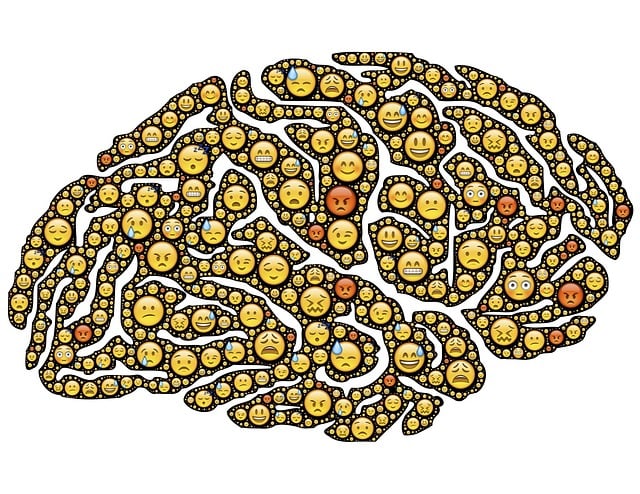In Highlands Ranch, dialectical behavioral therapy (DBT) utilizes structured data preparation and analysis to enhance mental health care. DBT therapists document client progress in emotional regulation, distress tolerance, and interpersonal skills, applying mindfulness meditation and other core principles to identify patterns and guide personalized interventions. This data-driven approach enables effective tailored treatment plans, improves therapy success measurement, and contributes to community mental wellness initiatives like the Mental Wellness Podcast Series and cultural competency training.
Mental health data analysis is a powerful tool for understanding and improving patient outcomes, especially in communities like Highlands Ranch. This article explores the process of collecting, preparing, and interpreting mental health data using evidence-based approaches such as Dialectical Behavioral Therapy (DBT). By analyzing trends and patterns, healthcare professionals can tailor treatments to individual needs. We discuss implementing data-driven strategies specific to Highlands Ranch, leveraging DBT techniques to enhance mental wellness outcomes for a better quality of life.
- Understanding Mental Health Data: Collecting and Preparing the Information
- Applying Dialectical Behavioral Therapy (DBT) Techniques to Interpret Data
- Analyzing Trends and Patterns: Uncovering Insights for Personalized Treatment
- Implementing Data-Driven Strategies for Improved Mental Wellness Outcomes in Highlands Ranch
Understanding Mental Health Data: Collecting and Preparing the Information

Understanding Mental Health Data is a foundational step in any analysis endeavor, especially when delving into complex topics like mental well-being. Collecting data involves gathering information from various sources such as patient records, surveys, and clinical assessments. In the context of Highlands Ranch Dialectical Behavioral Therapy (DBT), therapists play a pivotal role in documenting client progress, including emotional regulation skills acquisition, distress tolerance strategies, and interpersonal effectiveness improvements. This data not only offers insights into individual therapy success but also informs group therapy sessions and mental health policy analysis and advocacy efforts.
Preparing the data ensures its quality and consistency. It involves cleaning the data to handle missing values and errors, transforming it into a standardized format suitable for analysis. The process may include categorizing symptoms, severity levels, and treatment outcomes. For instance, in Mental Health Education Programs Design, preparing data could entail segmenting participants based on their initial anxiety levels to evaluate the effectiveness of tailored interventions for Anxiety Relief. Proper data preparation paves the way for insightful interpretations, enabling professionals to make informed decisions and drive positive change in mental health care services.
Applying Dialectical Behavioral Therapy (DBT) Techniques to Interpret Data

Applying Dialectical Behavioral Therapy (DBT) techniques to interpret mental health data offers a powerful approach in Highlands Ranch and beyond. This therapy’s core principles, including mindfulness meditation and distress tolerance skills, can enhance the analysis process. By examining patterns within client data, therapists can identify areas of concern, such as recurring emotional dysregulation or difficulties with interpersonal effectiveness.
DBT encourages professionals to view data through a lens of compassion and balance, facilitating effective risk management planning for mental health practitioners. This method allows for tailored interventions, whether it’s providing trauma support services or integrating specific mindfulness techniques, ensuring clients receive the most suitable care. Such an interpretive framework not only enriches treatment outcomes but also contributes to the overall growth and resilience of individuals seeking support.
Analyzing Trends and Patterns: Uncovering Insights for Personalized Treatment

Analyzing trends and patterns in mental health data is a powerful tool for understanding individual needs and personalizing treatment plans. By examining historical records and tracking progress over time, therapists can identify recurring issues and behaviors, enabling them to develop tailored interventions. This approach, often utilized in Highlands Ranch Dialectical Behavioral Therapy (DBT) therapy sessions, allows for a more effective support system. For instance, trends might reveal specific triggers for anxiety or stress-related episodes, leading to targeted coping strategies during Stress Management Workshops Organization sessions.
Through data interpretation, professionals can also gauge the success of certain therapies and interventions. Identifying patterns in patient outcomes can inform improvements in treatment protocols and guide Mental Illness Stigma Reduction Efforts. Moreover, analyzing trends could contribute to Depression Prevention initiatives by recognizing early indicators and designing proactive support systems, ensuring individuals receive the most suitable care from the outset.
Implementing Data-Driven Strategies for Improved Mental Wellness Outcomes in Highlands Ranch

In Highlands Ranch, implementing data-driven strategies has become a game-changer in mental wellness management. By leveraging the power of data analysis, healthcare providers can identify trends and patterns among the community’s mental health needs. This approach allows for more tailored interventions and personalized treatment plans, such as Dialectical Behavioral Therapy (DBT), which has shown remarkable effectiveness in addressing complex emotional challenges. The success lies in using evidence-based practices informed by real-world data, ensuring that every individual receives support aligned with their unique circumstances.
Highlands Ranch’s commitment to mental wellness is further enhanced through initiatives like the Mental Wellness Podcast Series Production and Healthcare Provider Cultural Competency Training. These efforts foster open conversations about mental health, boost confidence in seeking help, and promote understanding among diverse communities. By combining data-driven insights with proactive engagement, Highlands Ranch is creating a supportive environment where everyone can prioritize and improve their mental wellness outcomes.
Mental health data analysis is a powerful tool, especially when tailored to the unique needs of communities like Highlands Ranch. By understanding and interpreting mental health data through methods such as Dialectical Behavioral Therapy (DBT), we can identify trends and patterns that guide personalized treatment strategies. This data-driven approach has the potential to significantly improve mental wellness outcomes for residents in Highlands Ranch, ensuring a brighter and healthier future for all.














